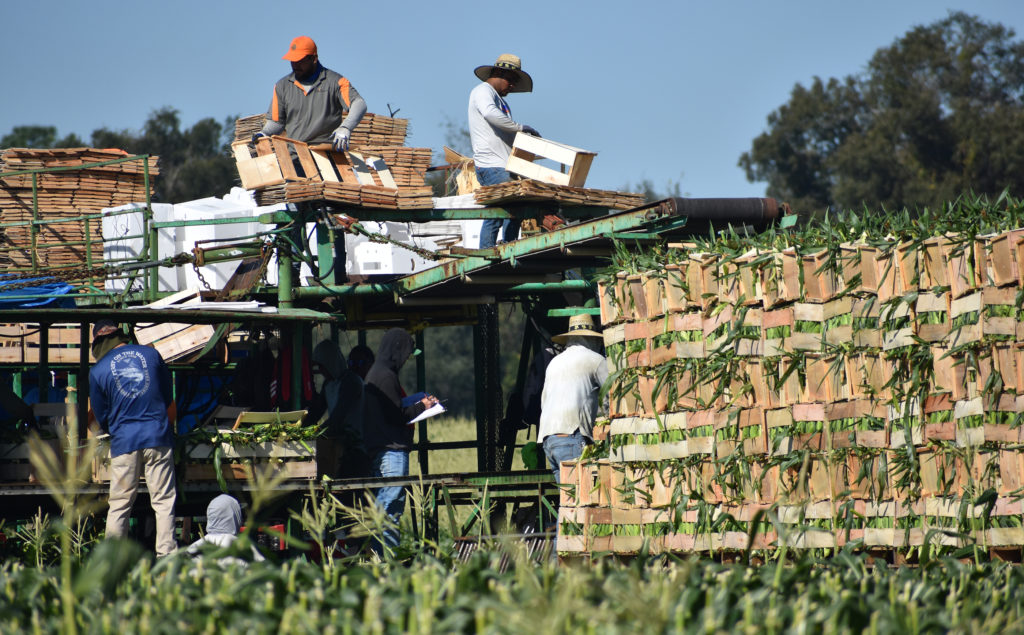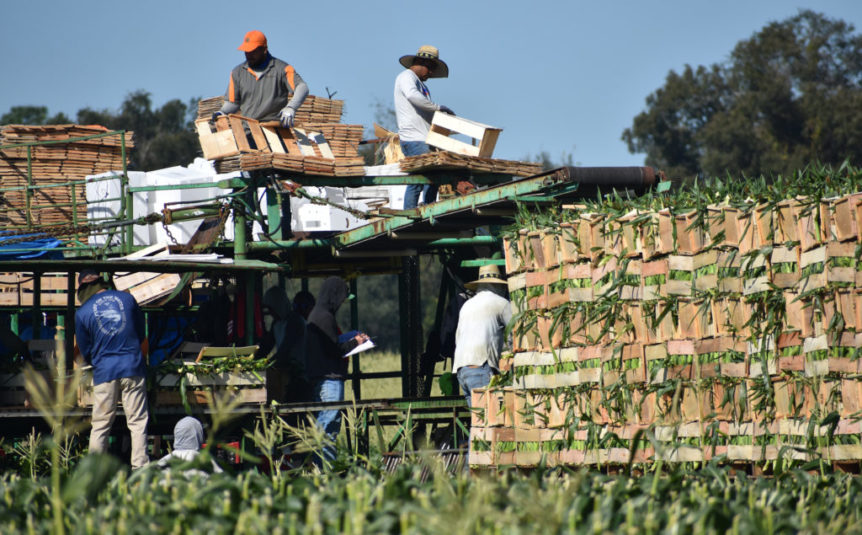
By Clint Thompson
Florida sweet corn volume should ramp up during the first couple of weeks of April. The increased production will be much needed for growers who experienced a sluggish start to the season, mostly due to excessive rainfall.
“We had a little bit of a slower start this year. There were some rain skips in the fall and winter. We had record rainfall in South Florida in some areas, and in some areas, there wasn’t any rainfall,” said Tori Rumenik, director of commodity services and supply chain at the Florida Fruit and Vegetable Association. “There have been rain skips from winter and fall that have affected the start of the crop, but now it’s really rolling. From what I’ve seen driving around, it looks beautiful.”
The record rainfall kept growers from being able to access the field for plantings.
“You can see that the EAA (Everglades Agricultural Area) area had insane amounts of rain, and then over on the west coast of Florida, it had very little rain. If you were on the eastern side of the state in South Florida, you got a ton of rain,” Rumenik said. “That doesn’t mean we’re going to have lower volume this year. A lot of people couldn’t get out to plant for a few days but then got in and made up some ground as well afterward.”
She noted that Fort Lauderdale, Florida, received 114 inches of rain in 2023, the wettest on record, while Naples received only 30 inches, the driest on record.
Increased Disease Pressure?
Though production is recorded in Florida from November through Memorial Day, peak volume is usually expected in April and May. But producers should also be wary of increased disease pressure following excessive rainfall.
“There always is (a concern for diseases) after rain and I would say that’s not just on sweet corn, it’s on all other crops as well. That’s where we lean real heavily on Extension and on our crop consultants just to tell us how the impact of the rain has been and how to best mitigate it,” she added.










